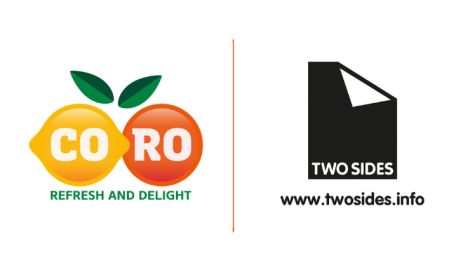Michal Lodej, Whitmar Publications, delivers his presentation on the commercial benefits of social media
‘Digital label printing goes mainstream’ was the title of BPIF labels autumn seminar, where nearly 60 delegates were present to learn about a range of topics dominant in the label industry.
Held over two days, at the Forest of Arden Hotel, Birmingham, the event included a networking golf tournament, dinner and a whole day of presentations ranging from printing workflow systems to social media strategies.
Starting off with his keynote address, Matthew Daniels, global capability leader, Unilever, gave a background to the company and outlined some of its plans for the future. As a company, it is looking closely at how best to implement digital. He said, ‘Late product differentiation, agility and flexibility, competitive pricing for short runs, fast changeovers and brand security are all reasons that we are looking into using digital. We want to manage its complexity and to use it as a marketing tool.’
Unilever is currently only using digital for producing mockups, but the intention is to put digital printing into all its main sites as it sees an opportunity to be able to respond to the demands from all the big retailers.
During the day, there were presentations from Esko, HP Indigo, Domino, Intec Printing Solutions, Avery Dennison, AVT and AB Graphics, detailing how their products can help printers with a move into digital.
David Harris, Esko, described the market drivers and how digital can help create value for the customer. He emphasised the importance of eliminating bottlenecks in administration, pre-press and finishing to keep up with production and said, ‘When you want digital printing capabilities, buying a digital press isn’t the end of the story. Workflow automation is key.’
There were also case studies presented to the attendees by printers sharing their own experiences and successes. Trevor Smith, Amberley Labels, spoke about new markets for digital labels and the company’s involvement with the recent Coca-Cola personalised bottles campaign.
One of the challenges the company faced for the project was the printing on unsupportive film as well as maintaining the colour. Mr Smith also spoke of the dangers of being typecast, saying, ‘The company has to be careful it does not get typecast as a ‘personalisation only’ company.’
Another case study from Ian Lemon, Springfield Solutions, explained how the company moved away from conventional printing, however, Mr Lemon said, ‘I don’t like being called a digital printer, that is a far too simplistic way of describing what we are trying to achieve.’ He also stressed that the company only moved away from digital, because it was right for them at the time, and that by no means does he expect everyone else to follow on to digital. He added, ‘For us the move to digital was an evolution not a revolution.’
Other presentations were held to help printers in areas other than printing. Phil Dalton from Legal Impackt spoke on the aspects of implementation of food labelling requirements. His presentation outlined the challenges label producers will face when the EU changes the law on how nutritional information has to be displayed on food packaging.
Additionally there was a presentation from Michal Lodej, Whitmar Publications’ online editor, explaining the commercial benefits of social media.






